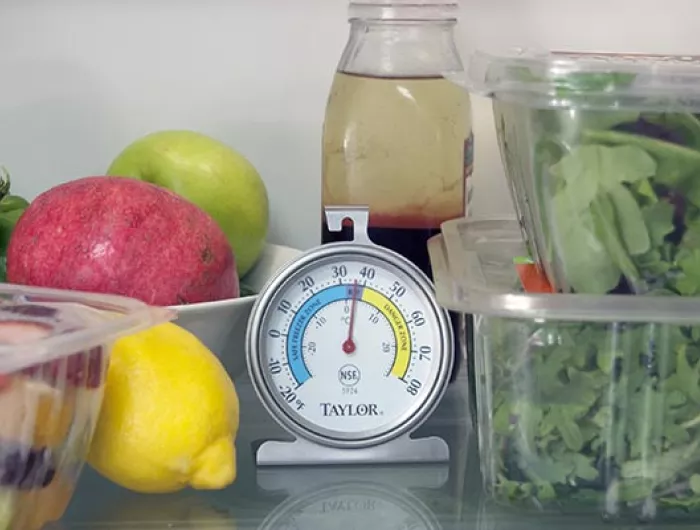Food safety tips for power outages and floods

Is the food in your refrigerator safe after the power goes out?
Keep your refrigerator door closed as much as possible. Food should be safe if the power is out for no more than four hours.
If you're expecting an outage, freeze water in plastic bags—or buy frozen cold packs—in advance. Move them from freezer to refrigerator as soon as the power goes out. A few packs of ice on each shelf and in the fruit and vegetable drawers can help keep the food below 40°F for longer.
When should you throw food away?
Toss anything perishable (like meat, poultry, fish, eggs, or leftovers) if it has been above 40°F for more than two hours.
What about the freezer? You can safely refreeze thawed or partially thawed food (even meat or fish) if it still contains ice crystals or is at 40°F or below when the power comes back on.
When in doubt, check our chart for tips on specific refrigerated or frozen foods.
And take note: some homeowners insurance policies or power companies might cover the cost of food lost during an extended power outage. Check with your insurance company or power supplier to see if you can be reimbursed.
More ways to prepare before the power goes out
The Food and Drug Administration offers this advice:
- Keep appliance thermometers in your refrigerator and freezer. That helps you determine if the food is safe during an outage.
- Freeze refrigerated items that you may not need immediately. That helps keep foods like leftovers, milk, and fresh meat and poultry at a safe temperature for longer.
- Keep coolers handy. Use them to keep food cold when the power is out for more than four hours.
- Store food and a supply of bottled water on high shelves to keep them away from contaminated water during a flood. (Check the FDA's website for more info about drinking water safety during floods.)
Sources: USDA, FDA, From Supermarket to Leftovers.
Photo: Jorge Bach/CSPI.
Topics

